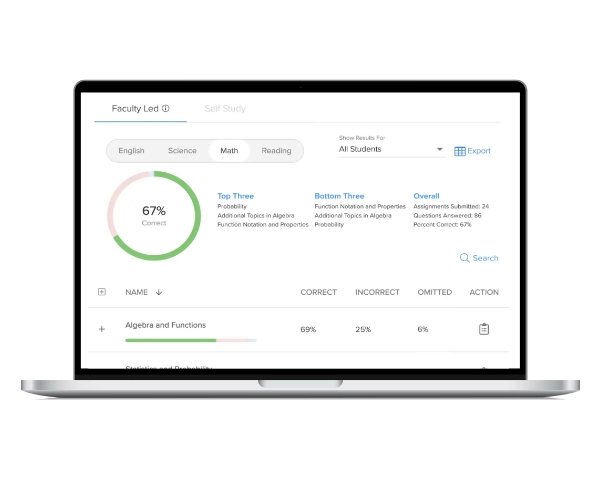One of the most famous psychology experiments in modern history is undoubtedly Ivan Pavlov’s dog experiment on classical conditioning. Through the experiment, Pavlov was able to condition his dog to salivate in response to the sound of a bell, proving a neutral stimulus could be conditioned to create a non-neutral response. Putting his theory into action with the experiment required a lot of time and preparation; after all, his dog had to be trained, or conditioned, to associate the sound of a bell with food, and therefore salivation. Pavlov’s careful preparation and process resulted in undeniable success.
Teachers of AP® Psychology must make sure their students are well-prepared for the summative exam in the weeks before it. During these final weeks of last-minute AP Psychology review, every course topic must be spiraled through, along with regular practice questions, to ensure that students are prepared for the exam. Because they are aware that the AP Psychology exam is anything but straightforward, psychology teachers are meticulous in their planning. According to the College Board®‘s 2022 score distribution report1, 58.3% of students who took the AP Psychology exam passed with a score of 3 or higher.
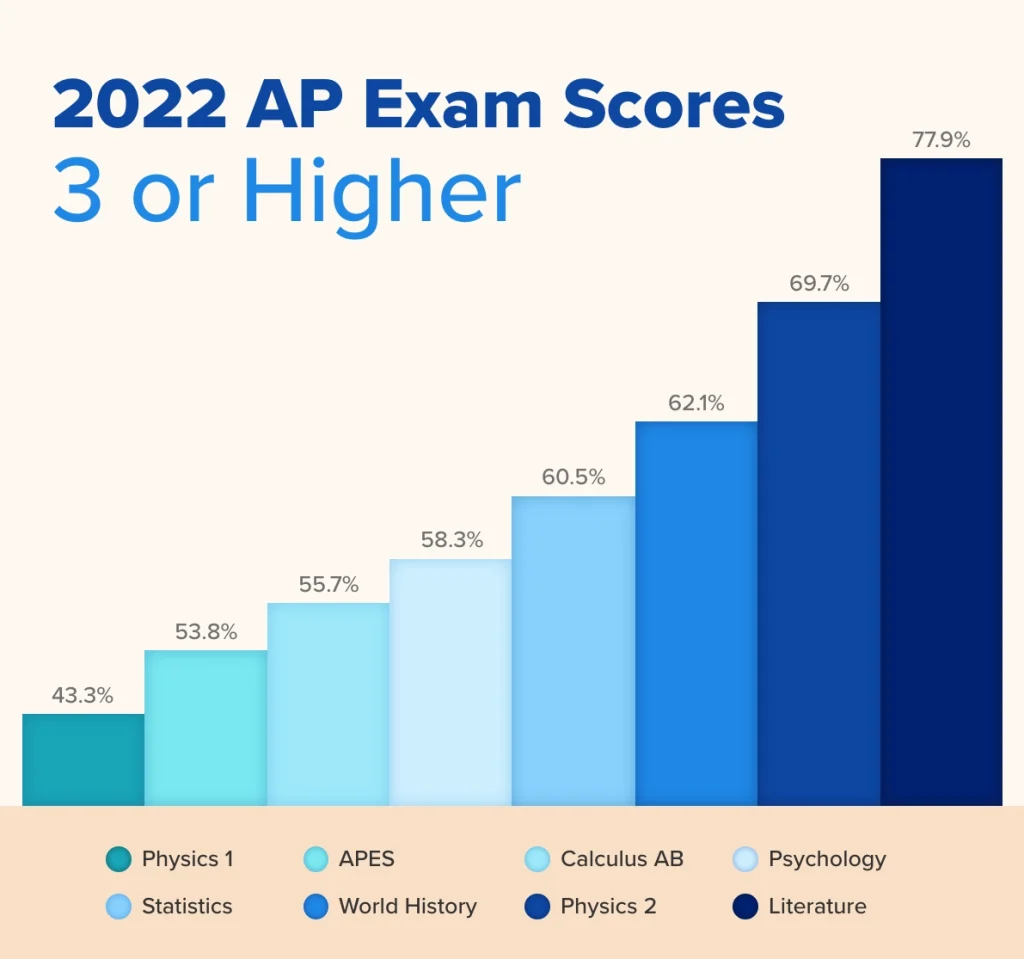
Student Score Distributions on AP exams (2022)
AP Psychology instructors must invest a lot of time in developing a rigorous summative review to give their students the best opportunity to succeed on the exam. To make that a little bit easier, we have provided five AP Psychology final review tips that can be incorporated into any content spiral.
Tip 1: Break Curriculum into Smaller, Doable Parts
In preparation for exams, teachers revisit crucial concepts in the weeks preceding them to ensure students remember the material on test day. However, a limited timeframe available for an AP Psychology final review makes comprehensive coverage of the entire course content difficult. Nevertheless, research indicates that the most effective approach someone can take to prepare for a summative test within a few weeks is to divide the study material into manageable “bite-sized” chunks. This strategy, known as “chunking,” results in efficient studying and enhances readiness for the test.
An article published in the journal Educational Psychology Review2 examined the impact of breaking down information into smaller, more comprehensible segments on student learning. The study discovered that chunking enhanced students’ confidence as they progressed through the material in a spiraling manner. AP Psychology teachers do not need to cover an entire unit or major foundational concept in a single class session. Instead, they can focus on smaller sections of the unit or concept incrementally until students have reviewed all the necessary content for the test. This approach allows for thorough preparation while addressing the material in manageable portions.

To prepare students for the AP Psychology test, AP Psychology teachers can “interleave” topics, which involves simultaneously reviewing multiple interconnected content standards. Studies indicate that when educators teach seemingly distinct subjects together, students develop a discerning ability to differentiate between them and effectively apply their knowledge. By incorporating both chunking and interleaving strategies, AP Psychology teachers significantly increase the likelihood that their students will feel prepared and confident on the day of the test. This comprehensive approach enhances learning outcomes, enabling students to effectively apply their understanding and perform well in the assessment.
Our choice for an AP Psychology final review guide: CollegeVine
Our choice for a review guide resource for teachers planning their summative AP Psychology final review is CollegeVine’s Ultimate Guide to the AP Psychology Exam.
Why We Chose It:
- Specific topic coverage: Covers the nine units of AP Psychology exam content, including concepts, theories, and processes.
- Exam structure overview: Provides information on the exam sections, multiple-choice questions, and free response questions.
- Score distribution insights: Shares the percentage breakdown and average scores for each AP Psychology exam score.
- Study strategies and resources: Offers step-by-step study strategies, recommended textbooks, practice tests, and online resources.
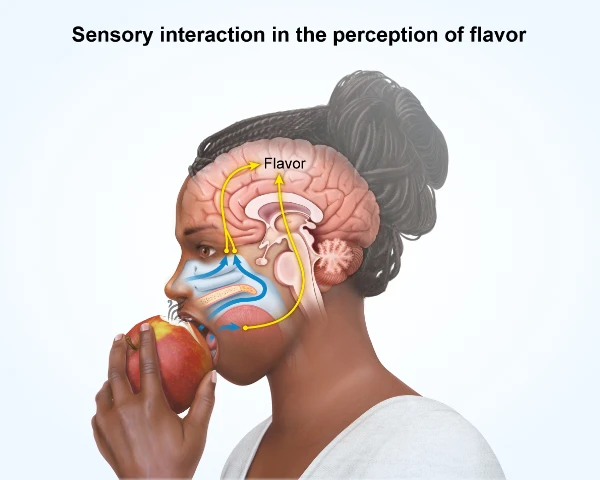
Tip 2: Practice with Released Exams
One of the easiest ways for teachers to prepare their students for the AP Psychology exam is by giving them practice using past exams. This approach is highly likely to result in improved test scores for students. Research from the University of Nebraska-Lincoln3 reveals that practicing with realistic test questions, like those found in released exams, led to an average score increase of 15%. However, studying with different questions, not related to the actual test, only resulted in a 6% improvement in test scores.
Our choice for released exam questions: The College Board secure released exams
For accessing released AP exams, the College Board is the ideal source, making it our top recommendation. While students don’t have direct access to these exams, AP teachers can utilize them for practice and AP Psychology exam review purposes. These exams can be found in AP Classroom.4 AP Psychology instructors can find detailed information about the released exams in the AP Classroom User Guides, which provide valuable insights and guidance for effective exam preparation. It’s a valuable resource that supports instructors in delivering quality education.
Why We Chose It:
- These questions are actual exam questions from past years, which adds credibility and authenticity to their source.
- They closely match the current structure and format of the AP Psychology exam, including the number, type, and duration of the questions.
- The previous exam questions cover a wide array of topics and feature various question types to provide comprehensive preparation.
- These questions are skillfully crafted to encompass a spectrum of difficulty levels, ranging from easy to challenging.
Tip 3: Multiple-Choice Practice Makes Perfect
Engaging in multiple-choice question practice is an essential aspect of preparing for the AP Psychology test. To effectively support their students, AP Psychology teachers should encourage completing a minimum of two multiple-choice questions per day while reviewing the material. Utilizing multiple-choice exit tickets or bellringers can serve as valuable tools for students to review crucial concepts that may appear on the test. By incorporating regular practice with multiple-choice questions, students can reinforce their understanding, boost their confidence, and enhance their performance in the AP Psychology exam.
Regularly practicing with multiple-choice questions enables students to develop the habit of utilizing annotations, identifying context clues, and eliminating clearly incorrect answers. This practice cultivates improved test-taking efficiency and accuracy. Additionally, students who engage in multiple-choice question practice may enhance their time management skills and become more familiar with the pace of the test. These valuable skills and strategies contribute to students’ overall preparedness and confidence when facing the AP Psychology exam.
Our choice for multiple-choice practice: UWorld
We highly recommend UWorld’s Learning Tools for AP Courses as the top choice for practicing multiple-choice questions. It’s an excellent resource to incorporate into your last-minute AP Psychology test preparation.
Students who use UWorld’s multiple-choice questions benefit from the exceptional explanations provided. The resource utilizes adaptive learning technology, which means that each lesson is customized based on the student’s individual understanding. This tailored approach ensures that students receive practice that aligns with their comprehension level.
One of the great advantages of UWorld is that students can utilize it throughout the year. They can review their learned material, evaluate their strengths and areas for improvement, and enhance their knowledge and skills in preparation for the AP Psychology exam. Furthermore, during the final weeks of AP Psychology test preparation, UWorld offers a convenient way for students to quickly review concepts and practice multiple-choice questions.
By incorporating UWorld’s Learning Tools into your AP Psychology preparation, you can effectively sharpen your test-taking abilities, deepen your understanding, and maximize your performance on the exam. It’s an invaluable resource that can greatly contribute to your success.
Why We Chose It:
- Students receive instant feedback, including explanations for both accurate and inaccurate answers. These detailed explanations empower students to learn from their errors and deepen their understanding of essential psychological concepts.
- The resource provides an extensive collection of multiple-choice practice questions, encompassing all the subjects covered in the AP Psychology exam. With comprehensive coverage, students can thoroughly review and master all the necessary topics.
- The practice questions are timed, allowing students to become familiar with the time constraints of the AP Psychology exam. This feature prepares students to effectively manage their time during the actual test and helps teachers assess whether their students can complete the exam within the allocated time.
- Teachers have the flexibility to choose specific topics and question types for their students’ practice sessions. This customization enables teachers to focus on the areas where students need the most support, ensuring that their AP Psychology exam review is tailored to address their students’ needs and enhance their overall preparedness.
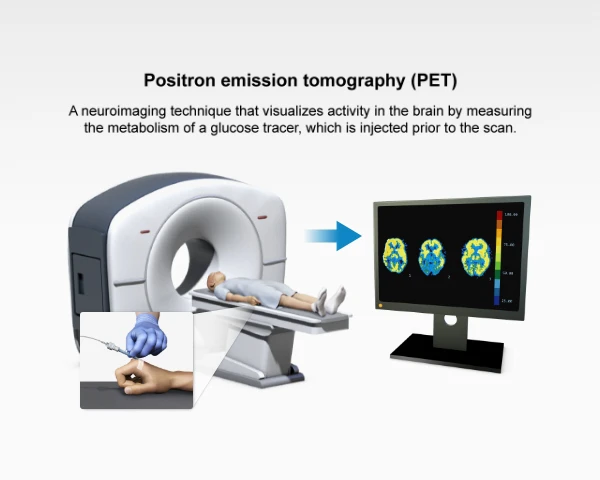
Tip 4: Greater Understanding with Justifications – Studying for FRQs
Recognizing the importance of truly grasping concepts sets modern education apart from that of previous decades. To ensure students genuinely understand a concept, teachers must go beyond simply providing answers and instead guide them in understanding the “why” behind it. When preparing for the AP Psychology test, it is vital to offer students ample opportunities to justify their responses. A study published in the Journal of Computer-Assisted Learning5 revealed that students who had to explain their answers demonstrated a stronger understanding of the material compared to those who only provided answers. By incorporating written explanations into the learning process, students can better comprehend the subject matter and improve their retention.
Encouraging students to justify their answers in writing also equips them for free-response questions, which are an integral part of the AP Psychology test. Additionally, providing online examples of outstanding free-response question (FRQ) responses can greatly enhance students’ performance on the exam. By examining sample questions, teachers and students can collaborate to generate ideas and develop effective FRQ answers together.
Our choice for additional FRQ practice: CrackAP
CrackAP’s AP Psychology Free-Response Practice Tests provide a great resource for AP Psychology FRQs in addition to the questions released by the College Board.
Why We Chose It:
- Extensive question bank: The resource provides a vast collection of FRQ practice questions covering various topics in AP Psychology, giving teachers abundant material to reinforce key concepts and ensure a comprehensive AP Psychology exam review.
- Convenient last-minute preparation: Teachers can quickly access the FRQ practice questions from the provided link, making it an ideal resource for efficient and time-saving last-minute AP Psychology review.
- Exam-focused practice: The FRQs closely mirror the format and content of the actual AP Psychology exam, allowing students to familiarize themselves with the question style and effectively prepare for the exam.
- Targeted revision: Teachers can select specific FRQs from the resource to address specific areas of weakness or reinforce important topics, enabling personalized and effective review sessions tailored to their students’ needs.
Tip 5: Repetition with Flashcards
Repetition is an effective way to ensure information retention when reviewing previous course material and important terminology. Flashcards provide an engaging learning method that enhances retrieval skills and enables students to remember information for longer periods of time. According to the Central Penn College Learning Center, flashcards help students actively recall information, stimulating memory and establishing lasting connections to the material.6
When preparing a last-minute AP Psychology review for the summative exam, teachers need to cover a wide range of scientific concepts and essential vocabulary. Incorporating flashcard-based activities with a spiral approach keeps students interested and motivated. Students can use flashcards for individual or group study sessions. Regular use of flashcards in AP Psych classes promotes better retention and understanding of important course information.
Our recommendation for AP Psychology flashcards: UWorld
We highly recommend the UWorld flashcards feature as an excellent resource for AP Psychology. It’s a top-notch tool for students to enhance their knowledge and boost their AP Psych skills. With UWorld flashcards, students have the flexibility to create personalized decks and focus on specific topics. It’s the perfect choice for those aiming to excel in the AP Psychology test, as the flashcard feature can be customized and is user-friendly, making studying a breeze.
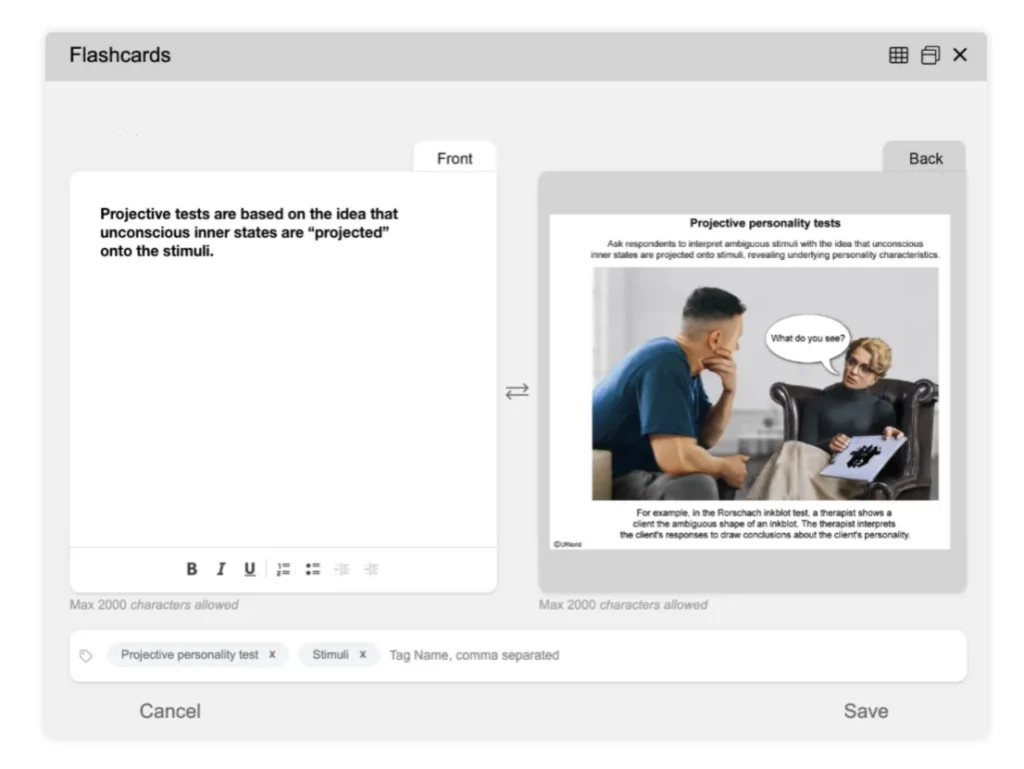
Teachers can also assign diverse review tasks that involve the use of traditional paper flashcards. Here are a few suggestions on how students can effectively utilize them for AP Psychology exam preparation.
Emphasize Understanding Instead of Memorization:
Rather than simply memorizing flashcard information, focus on making connections to other concepts to enhance your overall understanding of the content.
Create Personalized Flashcard Decks:
Designing your own flashcards compels you to engage with the material and express it in your own words, promoting better retention of information.
Combine Words and Pictures on Your Cards:
Enhance retention and recall by incorporating both text and visual representations on your flashcards, facilitating connections between language and imagery.
Infuse Fun into Flashcard Review:
Add excitement and engagement to your flashcard review sessions by incorporating games or enjoyable activities. This approach enhances retention and cultivates a positive learning attitude.
Rather than simply memorizing flashcard information, focus on making connections to other concepts to enhance your overall understanding of the content.
Designing your own flashcards compels you to engage with the material and express it in your own words, promoting better retention of information.
Enhance retention and recall by incorporating both text and visual representations on your flashcards, facilitating connections between language and imagery.
Add excitement and engagement to your flashcard review sessions by incorporating games or enjoyable activities. This approach enhances retention and cultivates a positive learning attitude.
Bonus Tip: Prepare Students with Test Day Reminders
This last tip might seem more like general advice for test day than a last-minute suggestion specifically for AP Psych. But it’s important for teachers to review what students should do and bring on the day of the exam. Every year, there are students who forget to silence their phones, bring a pencil, or even show up late for their AP exams. However, according to a study conducted by the College Board7, students who arrived early and had all their exam essentials performed 20 points better on average compared to those who were late or forgot their supplies. So, make sure to discuss a checklist of preparations your students should complete for the AP Psychology exam, including the materials they need to bring along.
Checklist of Reminders for AP Psychology Students
The Day Before the AP Psychology Exam:
Get a good night’s sleep for a full 8 hours.
Prepare all the necessary items you’ll need for the test in advance.
Avoid overstudying for the exam.
Fuel yourself with a balanced meal and stay hydrated with plenty of water.
Make time to relax and engage in activities that reduce stress.
Review effective test-taking strategies.
Double-check the exam’s location and start time.
Set multiple alarms to ensure you wake up on time.
Pack a valid photo ID and any other required items in your bag.
Plan your route to the test location.
The Day of the AP Psychology Exam:
Bring multiple sharpened No. 2 pencils with erasers.
Bring a pen with dark blue or black ink.
Have a legal, government-issued photo ID with you.
Bring your AP student packet, including an AP number label and demographic sheet.
Carry your exam e-ticket or registration confirmation.
Take a watch with you to keep track of the time.
Bring a snack and water, which should be placed on the floor during the test and only consumed during breaks.
Key Takeaways
For teachers aiming to provide students with a top-notch content review and AP Psychology test preparation, the last few weeks leading up to the AP Psychology exam are undeniably vital. By implementing the five suggestions outlined in this article, AP Psych instructors can effectively support their students in feeling well-prepared and self-assured during the exam-taking process.
Learn more about how we support AP educators who strive to make a difference in the lives of their students with our Learning Tools for AP Courses.

References
- Student Score Distributions* AP exams – May 2022. (n.d.). Retrieved March 22, 2023, from https://apcentral.collegeboard.org/media/pdf/ap-score-distributions-by-subject-2022.pdf
- Rohrer, D. (2012, July 28). Interleaving helps students distinguish among similar concepts – educational psychology review. SpringerLink. Retrieved March 21, 2023, from https://link.springer.com/article/10.1007/s10648-012-9201-3
- The effects of age and professional expertise on … – Wiley Online Library. (n.d.). Retrieved March 22, 2023, from https://onlinelibrary.wiley.com/doi/abs/10.1002/acp.1467
- Formative assessment. AP For All. (n.d.). Retrieved March 29, 2023, from https://apforallnyc.com/formative-assessment/
- Let me explain! the effects of writing and … – Wiley Online Library. (n.d.). Retrieved March 22, 2023, from https://onlinelibrary.wiley.com/doi/10.1111/jcal.12608
- Libguides: Learning Center – Study Skills: Flashcards. Flashcards – Learning Center – Study Skills – LibGuides at Central Penn College. (n.d.). Retrieved March 22, 2023, from https://guides.centralpenn.edu/c.php?g=695569&p=4999857
- Source: College Board. (2021). AP Exam Score Distributions. Retrieved from https://reports.collegeboard.org/media/pdf/2021-ap-student-score-distributions_1.pdf

